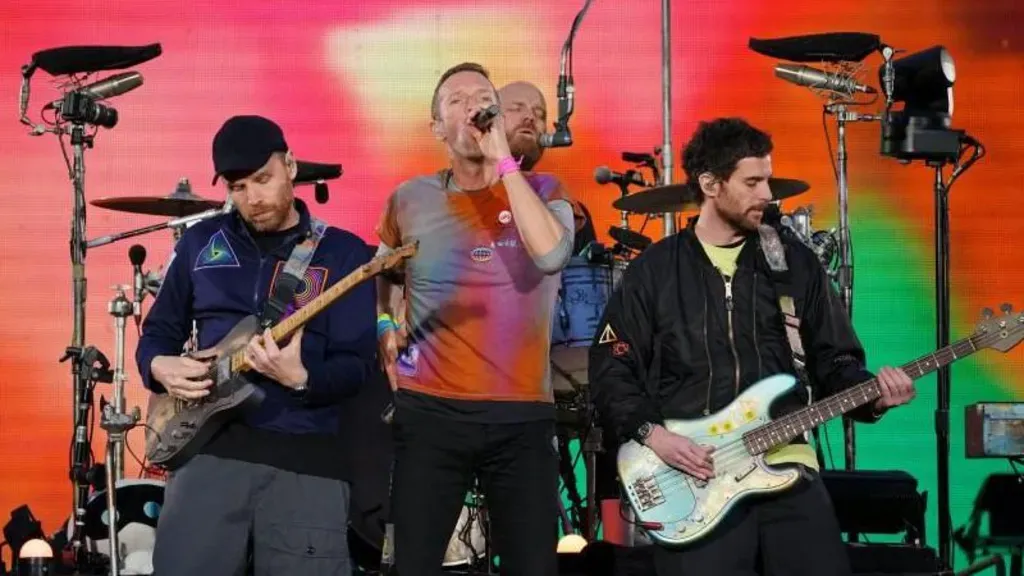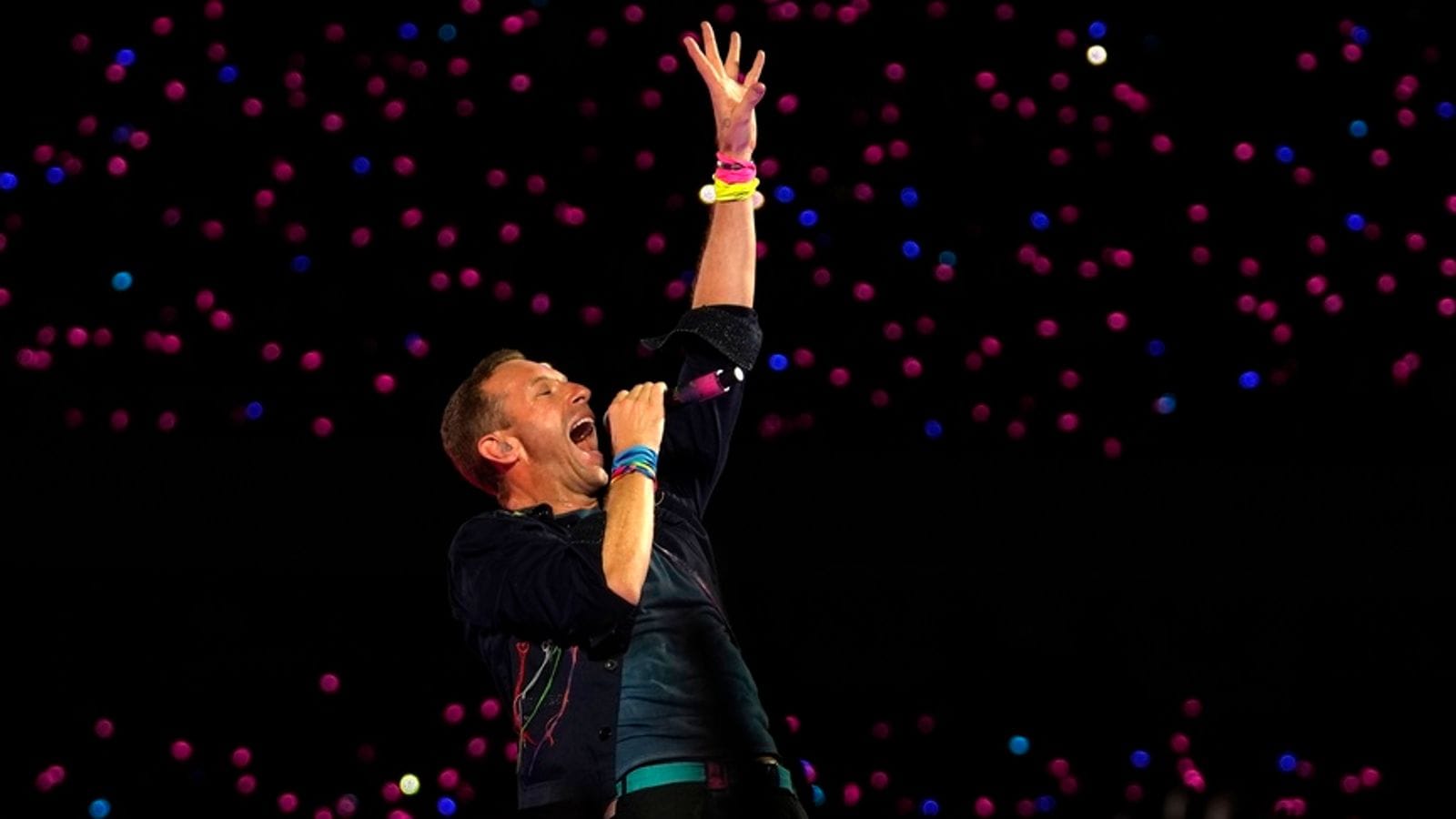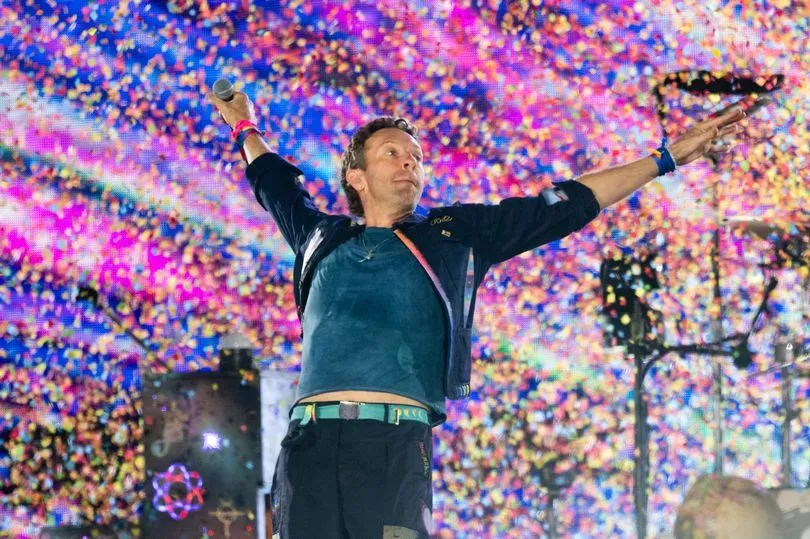Coldplay Reschedules Wembley Shows: A Symphony of Sustainability Halted by London Tube Strikes
This investigative report breaks down the sequence of events, examines the far-reaching consequences, and explores the band's history of resilience in the face of unexpected challenges.

Written by Lavanya, Intern, Allegedly The News
London, September 1, 2025
On their record-breaking Music of the Spheres World Tour, Coldplay has become an exemplar of sustainable touring, meticulously planning every detail to minimize their environmental impact. Yet, a force entirely out of their control, the London Tube strikes have brought their Wembley Stadium run to a temporary halt, forcing the rescheduling of their final two dates. This disruption not only presents a logistical nightmare for thousands of fans but also highlights a profound irony: a tour designed to combat real-world climate challenges has been sidelined by a very real-world infrastructure failure.
The Unprecedented Disruption: A Timeline of Events
August 29, 2025: The Rail, Maritime and Transport (RMT) union confirms a week-long series of strikes on the London Underground, starting September 5. The industrial action is a result of ongoing disputes over pay, working hours, and shift patterns. While not a full-network shutdown, the planned strikes would severely impact services, particularly on the Jubilee and Metropolitan lines, which are critical for accessing Wembley Stadium.
August 30, 2025: Coldplay releases a statement on their social media channels, announcing with "great regret" the postponement of their September 7 and 8 shows. The band's statement is clear: "Without a Tube service, it's impossible to get 82,000 people to the concert and home again safely, and therefore no event licence can be granted for the nights of 7th and 8th September." The move is a direct consequence of safety and licensing requirements, which cannot be met without a functional public transport system. The show originally scheduled for Sunday, September 7, is moved to Saturday, September 6, while the show on Monday, September 8, is shifted to Friday, September 12.
August 31, 2025: The announcement sends a shockwave through the fanbase, with a mix of frustration and understanding dominating social media. Fans who have traveled internationally or planned their trips around the original dates express their disappointment, but many rally to the band's defense, acknowledging the situation is beyond their control. Ticket holders who can't make the new dates are offered a full refund.
This timeline reveals a rapid, reactive decision-making process. Faced with the certainty of a transport collapse, the band and event organizers chose to reschedule rather than risk the safety of attendees or face an outright cancellation.
The Colliding Worlds: Sustainability vs. Infrastructure
Coldplay's Music of the Spheres tour is not just a series of concerts; it's a statement. The band has gone to extraordinary lengths to make it the most environmentally friendly tour in history. Key initiatives include:
- Renewable Energy: The show's power is generated by a kinetic energy floor and a system of power bikes that fans can use, along with rechargeable show batteries made from recycled BMW i3 batteries.
- Reduced Emissions: The band aims to reduce CO2 emissions by 50% compared to their previous tour, utilizing sustainable aviation fuel for flights and biofuels for trucking where possible.
- Eco-Friendly Materials: Stage props are made from recycled steel, and the signature LED wristbands are 100% compostable and have a return rate of over 85%, significantly reducing waste.
The irony is palpable. A tour built on the ethos of reducing carbon footprint by encouraging fans to take public transport is brought down by the very system it relies on. The Tube, a cornerstone of sustainable mass transit in London, becomes the tour's Achilles' heel. It's a stark reminder that even the most well-intentioned, meticulously planned sustainable efforts can be derailed by systemic, real-world challenges like labor disputes and infrastructure vulnerabilities.

Fan Reaction: A Mix of Disappointment and Devotion
The immediate fan response was a microcosm of the modern concert experience. The social media landscape exploded with a range of emotions.
- Disappointment and Frustration: "Heartbroken Pakistani here," one fan commented on Instagram, "both [new] dates don't suit my travel itinerary now." Others who had booked flights and hotels lamented the financial and logistical chaos.
- Understanding and Support: A large contingent of fans, however, was quick to defend the band. "Don't blame the band! Industrial action is always scheduled to make the most impact," one user wrote. The sentiment was that this was a force majeure event, and Coldplay had done all they could to avoid a full cancellation.
- Community Rallying: The comments section on Coldplay's announcement post quickly became a de facto ticket exchange, with fans offering to swap tickets or help others find new ones. This spontaneous act of community highlighted the deep loyalty and collective spirit of the Coldplay fanbase.
Despite the hurdles, the overarching sentiment remains one of anticipation. Fans are excited to see the band perform their greatest hits, as well as songs from their latest album, Moon Music. The spectacle, which includes the iconic LED wristbands, laser shows, and biodegradable confetti, is still set to be an unforgettable experience.
A History of Resilience: The Coldplay Case Files
This is not the first time Coldplay has faced tour-related challenges, though the nature of this one is unique. The band has a track record of adapting and persevering.
- 2022 Brazil Shows: During their Music of the Spheres tour, the band was forced to postpone a string of shows in Brazil after lead singer Chris Martin contracted a serious lung infection. The band's statement then, similar to now, was apologetic and emphasized the need to prioritize safety and health. The shows were successfully rescheduled for 2023, and fans who held onto their tickets were rewarded for their patience.
- 2012 Paris Incident: A smaller-scale example was a show in Paris during the Mylo Xyloto tour, where an equipment malfunction caused a delay. The band remained on stage, improvising and interacting with the crowd until the issue was resolved.
These past events demonstrate a pattern of resilience and fan-centricity. The band's first instinct is always to find a solution, rescheduling over canceling, and to communicate transparently with their fans. This history provides context and reassures the fanbase that, despite the current inconvenience, the Wembley shows will be a triumph.
Wider Implications: The Domino Effect of Strikes
The Coldplay situation is a perfect case study for the wider implications of transport strikes on the live events industry.
- Economic Impact: A single stadium show can generate tens of millions in local revenue from ticket sales, merchandise, and tourism. The two postponed Coldplay dates represent a significant loss for London's hospitality sector. Hotels, restaurants, and pubs in the Wembley area lose out on a weekend of business. This domino effect ripples through the local economy.
- Tourism: For international visitors, a strike can ruin a trip. Flights and accommodations are often non-refundable, and the stress of navigating a disrupted city can deter future visits. London, a global hub for music and tourism, is particularly vulnerable to such disruptions.
- Future of Events: The Coldplay postponement raises questions for event organizers. How do you plan for an unpredictable variable like a labor strike? It may lead to future contracts including "strike clauses," or even a push for event spaces with more flexible transport options.
This event reveals how deeply live events are intertwined with a city’s infrastructure. A music tour is a complex logistical operation, and a single point of failure, like public transport- can bring the entire system crashing down.

The Wembley Experience: A Preview of the Rescheduled Shows
Despite the delay, the shows promise to be a highlight of the tour. Fans can still expect to be dazzled by the visual and aural spectacle. The setlist is a blend of iconic anthems and new tracks, including "Yellow," "The Scientist," "Viva La Vida," and songs from their latest album. The crowd will be at the heart of the show, with kinetic dancefloors and power bikes generating the electricity that powers the stage. The light show, which includes the reusable LED wristbands, will turn Wembley Stadium into a breathtaking sea of color.
What Happens Next?
Ticket holders should check their email or point of purchase for information on refunds or ticket validity. The original tickets will be honored for the new dates. Any returned tickets will be put back on sale, giving a second chance to fans who may have missed out the first time. The show on September 6 and September 12 are now the new dates, and both the band and Wembley Stadium have confirmed these new arrangements are final, regardless of any last-minute changes to the strike.
Takeaway: The Unseen Costs of Industrial Action
The Coldplay postponement is a powerful example of how modern labor disputes in one sector can have a profound and unexpected impact on another. It shows that the "inconvenience" of a strike isn't just about a longer commute; it can disrupt major global events, affect international tourism, and force artists to confront the limits of their sustainable ideals. The band's resilience and commitment to their fans are commendable, but this event serves as a stark reminder of the fragile, interconnected nature of our urban ecosystems and the need for a more robust and reliable public infrastructure to support them.
Discussion Questions
Given the unpredictable nature of labor strikes, what preventative measures can event organizers and artists take to mitigate the risk of postponements or cancellations? The irony of the Coldplay situation highlights a conflict between sustainable aspirations and real-world infrastructure challenges. How can the music industry build a more resilient and truly sustainable touring model?




